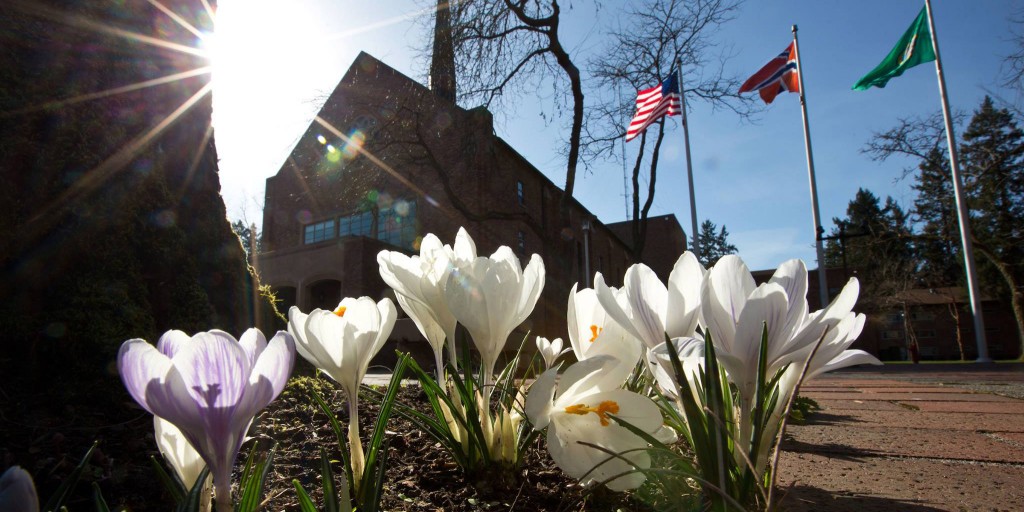Page 59 • (2,274 results in 0.034 seconds)
-

An artists rendering of the upper floor of the new PLU Nursing Center. (McGranahan Architects) Impact The Center provides: Learning through practice Enhanced opportunities to learn through practice using patient care scenarios to practice skills and develop clinical competency. Realistic environments Realistic environments with spaces that duplicate equipment and furnishings found in today’s modern high-tech healthcare settings. Application of classroom theory Ability to apply classroom theory by
-
Microeconomics: Global and Environmental Business principles (4 credits from the following): BUSA 201: Introduction to Business in a Global Environment Design and Communication principles (4 credits from the following): ARTD 110: Graphic Design 1- An introduction to design through the study of basic techniques, color theory, and composition. COMA 215: Writing in Communication Careers- Introduces students to the fundamental standards and expectations in communication writing. (3) ElectiveFour Semester Hours
-
Psychology). Prerequisites: PSYC101. (4) PSYC 320 : Development Across the Lifespan Biological, cognitive, social, and emotional development from conception through adulthood to death. Prerequisite: PSYC 101. (4) PSYC 330 : Social Psychology The study of how an individual's thoughts and behaviors are influenced by the presence of others. Research and theory concerning topics such as person perception, attitudes, group processes, prejudice, aggression, and helping behaviors are discussed. Prerequisite
-

. The Sista Circle group at PLU offers that opportunity to female students. It’s a place where women can come together for a bite to eat, listen to some Beyonce and share their triumphs and tragedies. Barbara Gilchrist ’20, who served as the Women’s Leadership Intern with the Center for Gender Equity (CGE) for the past three years, helped guide much of the group’s growth. What makes this group unique is that it was created as a safe space for women of color. In Sista Circle, Gilchrist could say: “I
-
New Honor Society Enters LutedomeEvery year, nine thousand students worldwide join Sigma Tau Delta, an English Honor Society founded in 1924. This international group of readers and writers engages in formal and informal discussions about literature, fosters literacy education through outreach programming, and celebrates the impact of words on culture and experience. In the 2014-2015 academic year, Sigma Tau Delta made its way to PLU. PLU students and faculty have joined a conversation that
-
as DS: followed by the specific title designated by the student. (1 to 4) ENGL 300 : Living Stories A gateway course for the intermediate-level courses in each of the English major concentrations, focusing on the imaginative, critical, and social power of reading and writing. Students will read and write in a variety of genres, engage criticism and theory, and reflect on the broad question of why reading and writing matter, with a special focus on storytelling. Required for all English majors
-
Paper, quoting ELCA “Caring for Creation”) “Sustainability as generally understood combines attention to immediate needs and long-term goals in ethical, environmental, and economic choices. It incorporates concern for social justice with the inherent value of the natural world and attention to long-term economic viability.” (Sustainable Community Working Group Report, 2010) “Just as important as the goals of sustainability is the work it inspires, the work of incorporating economic, ethical, and
-

comfort zone, and it’s a great reminder to trust God and be courageous in all I do whether it be for church, school, friends or family. In her spare time, Kaylee hosts a Christian small group meeting for PLU students at her off-campus house. Meet KayleeOne of 3,067 PLU students supported by donors like you!Kaylee Bauer Fast Facts Hometown: Puyallup and Snohomish, WA Class Year: 2018 Majors: English and Hispanic Studies Scholarship Received: PLU Women’s Club Scholarship and Faculty Scholarship Favorite
-
classroom. A history teacher created an outsider reading group that met in students’ homes, where we could discuss the essays of James Baldwin, considered too controversial for school curricula. I now understand why we never met on school property. Twenty years later, I joined a second micro-community, established by an English professor so that graduate students could discuss theoretical texts sidelined by traditionalist faculty. In both cases, powerful voices tried to keep discourse deemed
-
Virtual Group Work Tips and Tools (pdf) view download
Do you have any feedback for us? If so, feel free to use our Feedback Form.


